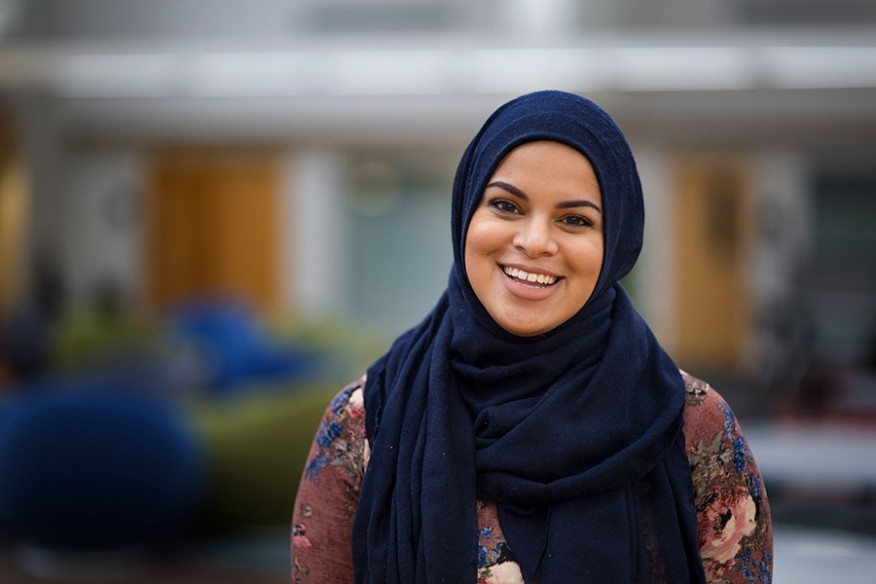-
Practice Area:Mental Health
-
Practice Method:Interpersonal Practice
-
Scholarship:Reach Out Fund
“From the time I was young,” Azma Husair tells us, “my parents have been social justice–oriented. Becoming aware of my own differences and noticing people who didn’t fit in or conform to social norms, I began thinking about the paths to surviving and thriving that other people were trekking on.” Asma describes how her mother responds to exploited members of society. “She tries to treat everyone with kindness and compassion, being gentle to whatever they bring,” Asma says. Asma’s parents are Muslims from Sri Lanka and have long been American citizens. Asma was born in Los Angeles, California, and has an older brother. “My parents aren’t wealthy or super educated,” she says, “but they care about my brother and I sitting with people in need of support, and genuinely opening our hearts to listening and loving them.”
Asma soon began looking around her community, and she saw disenfranchised individuals navigating complex systems. “I saw many first- and second-generation ethnoracial Muslims struggling with mental health problems,” she recalls. “But how were religious leaders talking to people about mental health? Were they validating their experiences? I wanted to make mental health services more responsive to the needs of my community. I am Muslim. I have seen how religious and ethnoracial minorities struggle when their narratives are shaped by a dominant culture. With intersectional identities being shaped by a number of different sociopolitical, historic, and cultural differences, understandings of normality and health may be different.”
As an undergraduate at the University of Michigan, Dearborn, Asma majored in Sociology and minored in Psychology. She began to consider Social Work, but did not want to continue at U-M. “I thought Ann Arbor would be too white,” she recalls. “No one would understand me. I heard this was a research-heavy institution, so I thought I wouldn’t get the skills and education I’d need to practice. But one of my professors at Dearborn who really believed in the potential I couldn’t see said, “I’m not writing any letters of recommendation for you unless you apply to U-M’s School of Social Work!”
Asma took her professor’s advice, was accepted here and found a niche. “I feel extremely privileged and grateful to be here and to learn under our clinical faculty,” she says. Asma has received special support from the need-based Reach Out Fund, supported by alumni and friends of the School of Social Work.
“The Reach Out Fund made it possible for me to go to San Francisco on a professional development trip,” Asma explains. “My understanding of what I could do and be as a social worker expanded tremendously. I got to learn alongside those with similar values and goals. I learned about navigating the job market as a new social worker and as a minority. I got tips on how to connect with mentors and how to network. I feel extremely grateful. I wouldn’t have learned all that if not for this trip, and the Reach Out Fund made it possible. I would highly encourage people to give to the Reach Out Fund!”
Asma is excited about the future: “I want to work as a therapist with adults and kids providing culturally responsive, relationship-focused mental health services. I know that there are many individuals in the Muslim community trying to navigate theological, ethno-cultural and intergenerational issues. I can see these compounding stressors impacting people’s mental health. At a micro level, I can see it manifesting as substance use, various addictions, depression and anxiety. At other levels, I can see it impacting family dynamics and the overall state of the community. I believe interdisciplinary, collaborative work is needed to improve individual and social conditions. I can’t change the whole world, but at the very least, I hope I can change some people’s worlds.”
